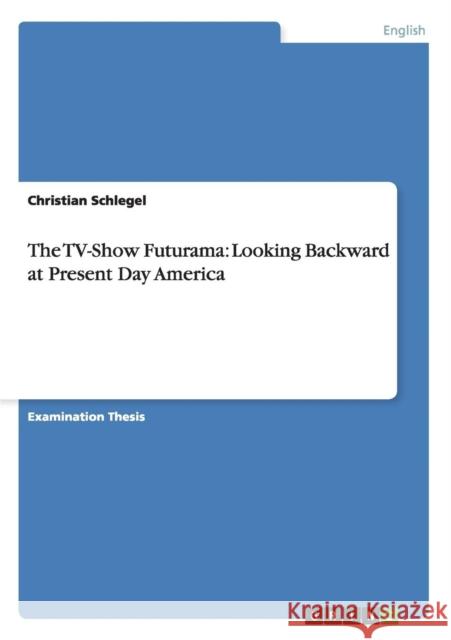The TV-Show Futurama: Looking Backward at Present Day America » książka
The TV-Show Futurama: Looking Backward at Present Day America
ISBN-13: 9783656442387 / Angielski / Miękka / 2013 / 80 str.
Examination Thesis from the year 2005 in the subject American Studies - Miscellaneous, grade: 2,7, Johannes Gutenberg University Mainz (Amerikanistik), course: Abschlussarbeit 1. Staatsexamen, language: English, abstract: It is a valid question whether an animated cartoon can be subject to a dissertation or not. It is important that it consistently comprises of satirical jokes as well as having the aspiration of teaching its viewers something; it has to make them think. A cartoon does not necessarily only have to be entertainment, neither requesting critical review nor treatment. Matt Groening describes Futurama like this: "It's about a pizza delivery boy named Fry who, on New Year's Eve 1999, gets inadvertently frozen in a cryogenics lab and wakes up 1,000 years later. The themes: If you are a loser, is it possible to reinvent yourself? How do you deal with the desire for youth, for the return of dead loved ones, and what does it mean to be finite in the universe? Boy, is this too pretentious or what?" ...] The idea of projecting problems of the present into the future has its genesis in Edward Bellamy's Looking Backward 2000-18875. Unlike famous dystopias like Aldous Huxley's Brave New World, George Orwell's 1984, H.G. Wells' Time Machine, or Ray Bradbury's Fahrenheit 451, Looking Backward draws a positive picture of the future in order to encourage his coevals to work towards the society he depicts. In contrast to that, dystopias use current events, like technological breakthroughs or political changes, consider a possible development and present a worst case scenario, which needs to be avoided. In the next two chapters it will be discussed whether Futurama stands in a dystopian tradition and in how far allusions to possible literary and other archetypes are important.











